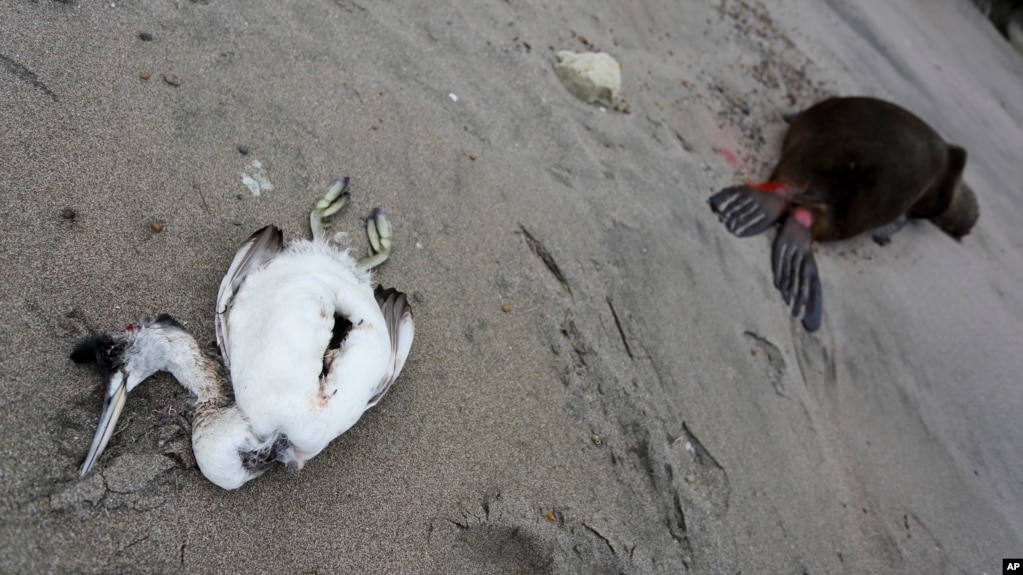AUDIO
Scientists Study Why Bird Flu Kills Some Animals, Not Others

Researchers are seeking to learn why bird flu kills some animals quickly but causes only moderate illness in others.
In recent years, bird flu is believed to have killed millions of wild and domestic birds worldwide. Other animals such as seals, cats, dogs and cows have also been infected.
The virus is officially known as H5N1. It has largely stayed out of the human population. However, the World Health Organization (WHO) reported that as of April 1, 2024, H5N1 had caused nearly 900 human infections and 463 deaths since 2003.
Most of the human cases involved direct contact between people and infected birds. In cases of the virus spreading between humans, individuals involved were found to have had close and extended contact within households.
The currently spreading version of bird flu was first identified in 1959. But the illness did not start to cause concern among health officials until a bird flu outbreak hit Hong Kong in 1997. That outbreak caused severe sickness and deaths in some humans.
Scientists are still studying possible reasons the H5N1 virus has not heavily affected human populations. But some researchers fear the situation may change.
Like other viruses, H5N1 has mutated over time. During the last few years, one particular bird flu version has been spreading quickly and widely.
Dr. Tom Frieden is a former director of the U.S. Centers for Disease Control and Prevention (CDC). He told The Associated Press about the ongoing outbreaks, “There's a lot we don't understand.”
Frieden also heads the non-profit group Resolve to Save Lives. He added, “I think we have to get over the 'hope for the best and bury our head in the sand' approach."
Some researchers have theorized flu viruses that started in birds caused severe human pandemics. For example, pandemics that took place in 1918 and 1957 quickly spread among animals and people.
Many experts think it would be unlikely the currently spreading virus will become a deadly, worldwide pandemic.
But to prepare for that possibility, U.S. health officials are developing vaccines that might be needed. At this time, they are not planning other measures. This is because the virus is not causing severe disease in humans and there is no strong evidence it is spreading from person to person.
The U.S. Department of Agriculture has said U.S. animal outbreaks have been reported at numerous dairy cow farms and among more than 1,000 groups of poultry. At least four human infections have been reported among hundreds of thousands of people working at U.S. poultry and dairy farms.
Worldwide, doctors have so far identified 15 human infections caused by the current version. That count includes one death, a 38-year-old woman in southern China in 2022. But officials said most of the identified people had either no signs of disease or only mild ones.
Some experts have wondered whether humans have built up some level of immunity after being infected by other virus forms or because of vaccination. But a study involving human blood samples suggested there was little to no existing immunity to this version of the bird flu virus.
____________________________________________
Words in This Story
domestic – adj. relating to the home and family relationships
mutate – v. to cause a gene to change and create an unusual characteristic in a plant or animal
bury (one’s) head in the sand –idiom to avoid dealing with a difficult problem
approach – n. a way of doing something
dairy – adj. containing or made from milk
poultry – n. birds, as chickens or ducks, that are bred for their meat and eggs
immunity – n. bodily power to resist an infectious disease
https://learningenglish.voanews.com/a/scientists-study-why-bird-flu-kills-some-animals-not-others/7663461.html